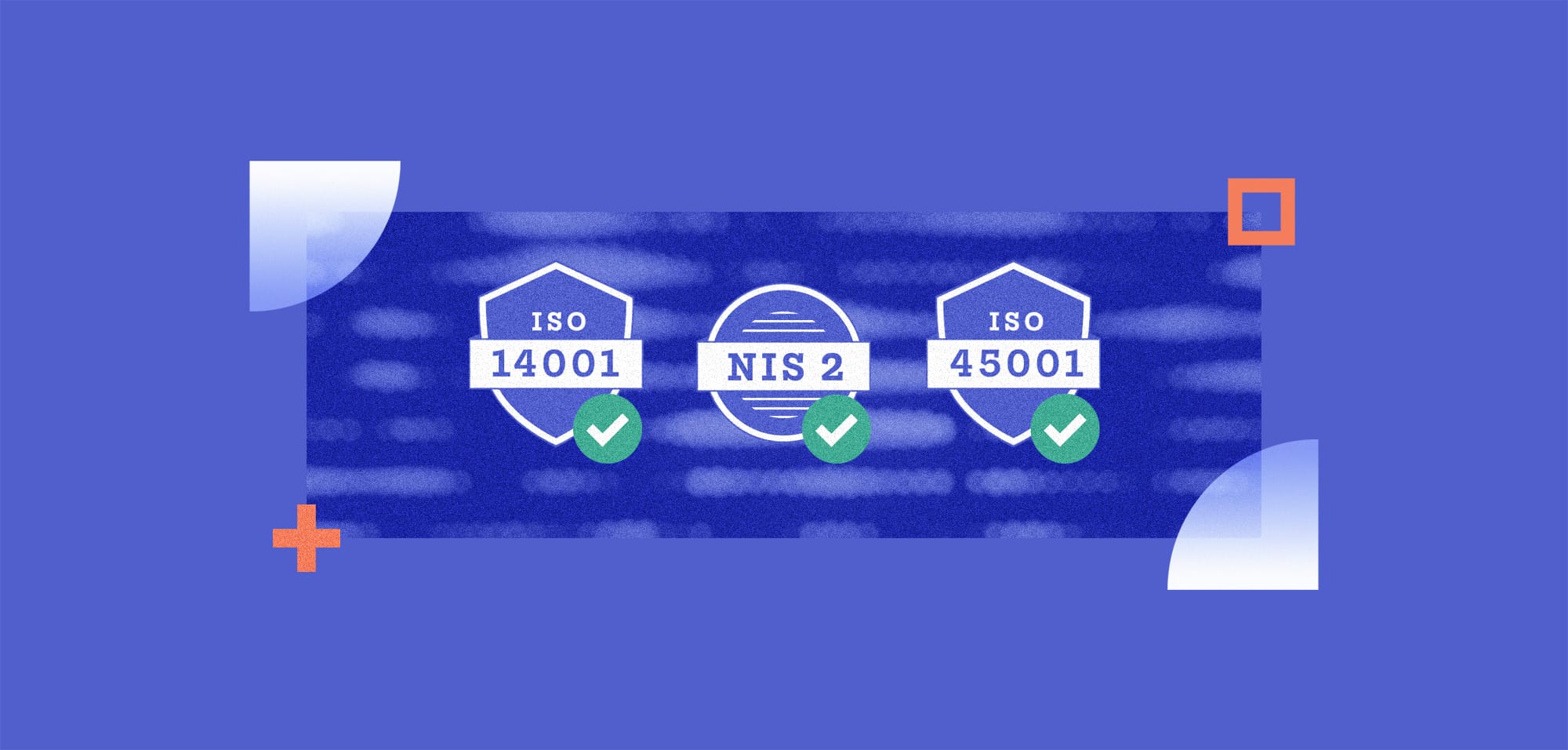
The Intersection of Digital Trust and Regulatory Compliance
Table Of Contents:
- 1) Why Should Organisations Care About Digital Trust
- 2) Understanding the Regulatory Landscape
- 3) The Consequences of Poor Digital Trust Practices
- 4) Building Digital Trust Through Regulatory Compliance
- 5) Using Information Security Frameworks to Build Digital Trust
- 6) Challenges Organisations Face in Achieving Regulatory Compliance
- 7) Digital Trust, Business Success
- 8) Unlock Your Compliance Advantage Today
Maintaining digital trust has become increasingly important for organisations in today’s digital age. But what is digital trust? Fundamentally, when broken down, it is the level of confidence consumers, and stakeholders have in an organisation’s ability to protect and use their data responsibly. What is the most effective way to build digital trust? Establishing a foundation of effective regulatory compliance. In doing so, organisations can demonstrate and provide evidence that they follow legal and ethical data protection, information security and usage guidelines.
This blog will explore the intersection of digital trust and regulatory compliance. We will discuss the importance of regulatory compliance in building digital trust, the key regulations impacting digital trust, the challenges organisations face in complying with regulations, and how established frameworks can help organisations embed digital trust foundations to empower ongoing business growth.
Why Should Organisations Care About Digital Trust
Recent McKinsey research evidenced that digital trust leaders will see at least 10% annual growth rates on their top and bottom lines—a clear financial benefit for any organisation focusing on growth and business longevity.
The PwC Digital Trust Report also highlighted the growing influence poor digital trust could have, with over 40% of respondents indicating they would choose not to work with an organisation that had failed to protect customer information and data adequately.
Organisations that can effectively demonstrate digital trust achieve a competitive advantage financially and when looking to win new business. These organisations also avoid the negative impact of reputational damage and the financial penalties that poor information practices will bring.
Understanding the Regulatory Landscape
One of the most transparent ways to demonstrate digital trust is to comply with regulations and industry standards relevant to your organisation or industry sector.
Regulations impacting digital trust can come from various sources, including government agencies, industry associations, and international bodies. Key regulations include:
- The General Data Protection Regulation (GDPR).
- The California Consumer Privacy Act (CCPA).
- The Payment Card Industry Data Security Standard (PCI DSS).
Compliance with these regulations is essential for legal reasons and for building trust with consumers and stakeholders.
Companies must also comply with industry-specific regulations to reassure their customers and establish explicit levels of digital trust. These vary by sector but include HIPAA and medical device regulations in the healthcare sector, TISAX® in the automotive industry and NIS or NIS2 for organisations forming part of critical national infrastructures in the UK and Europe. You can find more information on the various regulations and frameworks on our website.
The Consequences of Poor Digital Trust Practices
Failing to protect personal data adequately can be significant and far-reaching for organisations, including:
Legal penalties: Organisations can face significant fines from regulatory bodies for failing to protect personal data, especially if they are found to have violated privacy laws such as the EU’s General Data Protection Regulation (GDPR) or California’s Consumer Privacy Act (CCPA).
Reputational damage: A breach of personal data can cause significant harm to an organisation’s reputation, leading to a loss of customers and a decrease in trust. The negative impact on a company’s reputation can take years to repair.
Lawsuits: Organisations can face lawsuits from individuals whose personal data has been breached, leading to further financial penalties and reputational damage.
Decreased customer trust: When personal data is breached, customers can lose confidence in the organisation, resulting in reduced customer engagement and potentially damaging the organisation’s brand and reputation.
Decreased stock value: Data breaches can harm a company’s stock value as investors become concerned about potential financial penalties and reputational damage.
Building Digital Trust Through Regulatory Compliance
The foundational tool for digital trust is robust and effective information security and data privacy practices.
Organisations that take information security and data privacy seriously demonstrate that they understand their client’s concerns and are taking the necessary steps to ensure the confidentiality and integrity of their data. At the same time, organisations are empowering their people to deliver exceptional service through audited and managed access to the data they hold.
Organisations that achieve excellent infosec and data privacy compliance demonstrate similar behaviours, such as:
- Transparency: Organisations build trust by being transparent about their data privacy and security practices. This includes publishing simple and easily accessible privacy policies, informing customers about how their data will be processed, and providing clear explanations of any data breaches.
- Staying up to date: Organisations that stay updated with relevant regulations and make necessary changes to ensure compliance stay ahead of many risks and reassure their customers that they’re always protecting information and data with the highest possible standards.
- Implementing Strong Security Measures: Implementing straightforward controls to protect and mitigate risks is critical, not just for protecting information and data against breach, accidental disclosure or damage but also to ensure that should the worst happen, the steps taken are documented, proportional to the risk and demonstrate compliance with relevant regulations. These controls can include functions such as encryption, multi-factor authentication, and access controls to protect sensitive data.
- Conducting Regular Audits and Assessments: Regular audits and assessments can help organisations identify areas where they need to improve their data privacy and security practices. Regular reviews demonstrate that organisations are committed to maintaining high compliance standards. As regulations change, companies’ focus change or evolve the controls and protections, once in place, may no longer deliver the needed levels of protection or assurance and therefore require updating, amending or improving to meet changing needs.
- Training employees: An organisation’s first line of defence in achieving data and information security is its people. Organisations that invest in training employees on data privacy and security best practices can prevent or get ahead of data breaches and other security incidents more effectively than those organisations that do not.
Demonstrating digital trust through regulatory compliance is the responsibility of the whole organisation. Every level of the organisation must understand their role in achieving effective information and data privacy practices; those organisations that invest in training create a culture of security that ensures a competitive edge when faced with a cyber incident.
Using Information Security Frameworks to Build Digital Trust
Adopting a framework is one of the most effective ways businesses can establish their digital trust position. The ISO 27001 framework is a globally recognised international standard for information security management systems (ISMS) that provides a systematic and risk-based approach to securing sensitive information assets.
By implementing the ISO 27001 framework, organisations can build a comprehensive information security management system that includes policies, procedures, controls, and risk management practices to protect against potential security threats and vulnerabilities, ensure the security of their customer’s data and evidence digital trust capabilities.
Some of the core requirements of ISO 27001 will enable organisations to demonstrate high levels of digital trust, including:
Taking A Risk-Based Approach: The ISO 27001 framework requires organisations to identify and assess risks to their information assets and implement appropriate controls to mitigate those risks. This approach ensures that information security measures are tailored to the specific risks and needs of the organisation, which helps build trust with stakeholders.
Ensuring Compliance with Regulations: The ISO 27001 framework is designed to help organisations comply with various regulatory requirements related to information security, including data protection laws, privacy regulations, and industry-specific regulations. Organisations can build trust with regulators and other stakeholders by demonstrating compliance with these regulations.
Enabling Continuous Improvement: The ISO 27001 framework emphasises the need for ongoing monitoring, review, and improvement of the information security management system. By continuously improving their security measures, organisations can demonstrate their commitment to protecting sensitive information and building trust with stakeholders.
Effectively Managing Third-Party Providers: ISO 27001 certification is recognised globally as a validation of an organisation’s information security management system. By obtaining certification, organisations can demonstrate to customers, partners, and other stakeholders that they have implemented a comprehensive and effective information security management system.
Challenges Organisations Face in Achieving Regulatory Compliance
Despite regulatory compliance being one of the most powerful tools to demonstrate digital trust, many organisations must overcome similar challenges to get there. These include:
- Resource Constraints and Cost Considerations
- Limited Understanding of Regulations and Compliance Requirements
- No Effective Culture of Information Security and Data Privacy
This is where a platform like ISMS.online can help by providing a comprehensive suite of tools and resources that make it easier for organisations to implement and maintain an ISO 27001-compliant Information Security Management System (ISMS) and document compliance with core regulations globally such as GDPR, CCPA and PCI DSS. The platform offers:
Policy and document management: The platform provides a central location for managing policies, procedures, and other documentation related to information security.
Risk assessment and management: ISMS.online includes tools for conducting risk assessments and managing risks over time.
Collaboration and communication: The platform includes collaboration and communication tools, enabling teams to work together more efficiently and effectively.
Compliance monitoring and reporting: ISMS.online provides tools for monitoring compliance with information security standards and regulations and generating reports demonstrating compliance to stakeholders.
Training and awareness: The platform includes resources for training and awareness, which helps organisations educate their employees about best practices of information security and build a robust and foundational security culture.
Digital Trust, Business Success
Regulatory compliance plays a vital role in building digital trust. Consumers and businesses are increasingly concerned about the safety and security of their data and business information. As a result, they are more likely to trust companies that follow industry regulations and standards and can demonstrate compliance.
By prioritising regulatory compliance, companies can establish themselves as trustworthy and reliable partners in the digital space while building a solid foundation for business growth and longevity. As the world becomes increasingly digital, building and maintaining digital trust will be crucial for the success of businesses in all industries.
Unlock Your Compliance Advantage Today
If you’re looking to start your journey to better digital trust, we can help.
Our ISMS solution enables a simple, secure and sustainable approach to data and information management with ISO 27001 and other frameworks. Realise your competitive advantage today.




